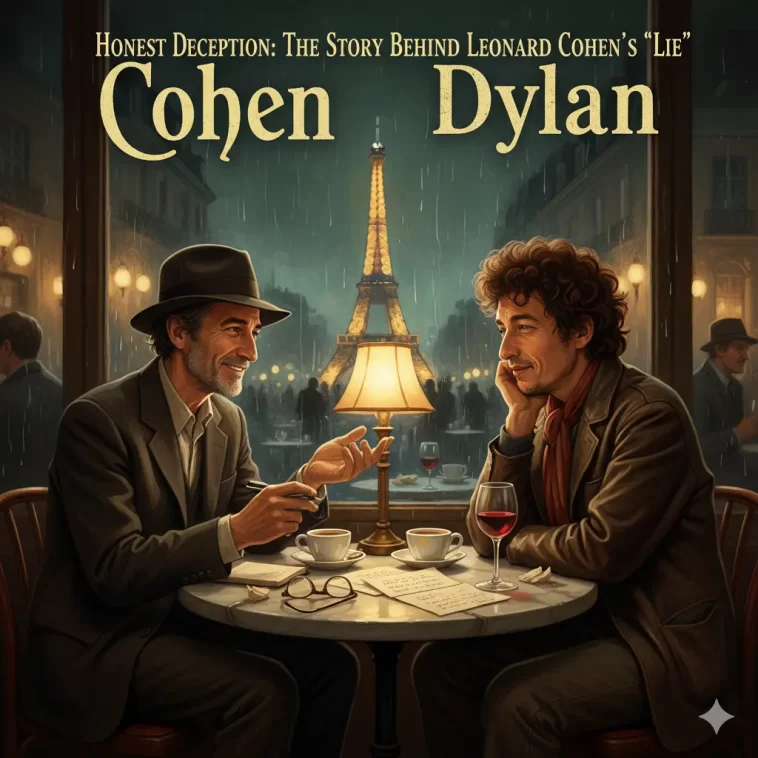Leonard Cohen and Bob Dylan: A Friendship Built on Admiration
The creative bond between Leonard Cohen and Bob Dylan represents one of the most fascinating relationships in music history. Both men, regarded as poets before musicians, shaped the world of songwriting with profound emotion and literary mastery.
For decades, their paths intertwined—two icons of alternative music whose lyrical genius defined generations. Yet, despite their mutual admiration, their approaches to creating art were strikingly different.
The Legendary Paris Café Conversation
In a BBC interview, Adam Cohen, Leonard’s son, recalled a famous story that perfectly captures the difference between the two artists.
According to Adam, his father once met Bob Dylan in a café in Paris sometime after the 1960s. As they sat together, Dylan casually asked, “How long did it take you to write ‘Hallelujah’?”
Cohen, not wanting to seem obsessive, smiled and replied, “Oh, you know, a couple of years.”
The truth, however, was very different. “It was actually seven years,” Adam revealed. Seven years of revising, rewriting, and emotional chiseling went into crafting what would become one of the most beloved songs in modern history.
Dylan’s Lightning Speed and Cohen’s Patience
After a short silence, Cohen decided to ask Dylan the same question. “How long did it take you to write ‘Just Like a Woman’?”
Dylan reportedly shrugged and said, “Fifteen minutes.”
That sharp contrast perfectly summarized the two artists’ creative philosophies. Dylan’s brilliance flowed quickly—raw, honest, and spontaneous. Cohen’s came through slow perfection, “like chiselling marble,” as his son described it.
Despite their differences, both methods led to timeless results. Dylan’s instinctive creativity gave birth to countless classics, while Cohen’s meticulous craftsmanship produced songs that felt spiritual in their depth and meaning.
A Mutual Respect That Transcended Time
Years later, Dylan himself spoke about Hallelujah, telling The New Yorker:
“That song ‘Hallelujah’ has resonance for me. It’s a beautifully constructed melody that evolves and slips back, all in quick time. The ‘secret chord’ and the I-know-you-better-than-you-know-yourself aspect of the song have plenty of resonance for me.”
It’s a rare acknowledgment from one master to another—proof that, beneath their contrasting processes, Dylan and Cohen shared the same soul: a relentless pursuit of truth through art.
The Spiritual Divide That United Them
While Bob Dylan became the voice of a generation, speaking for social change and rebellion, Leonard Cohen became the voice of introspection, channeling love, loss, and faith.
Dylan found peace in a steady devotion to his music, while Cohen wandered between fame and silence—eventually seeking spiritual clarity in a Buddhist monastery.
And yet, both men sought the same thing: authentic expression. Their differences were merely two sides of the same coin—the poet and the prophet, forever echoing through history.
The Legacy of Two Masters
The story of Cohen’s “lie” to Dylan isn’t about deception—it’s about artistic humility. It shows how even legends measure themselves against one another, searching for meaning in their craft.
Today, their songs—“Hallelujah” and “Just Like a Woman”—continue to resonate with listeners worldwide. Their friendship, filled with humor, honesty, and respect, reminds us that true artistry isn’t about speed or perfection. It’s about devotion, patience, and truth.

